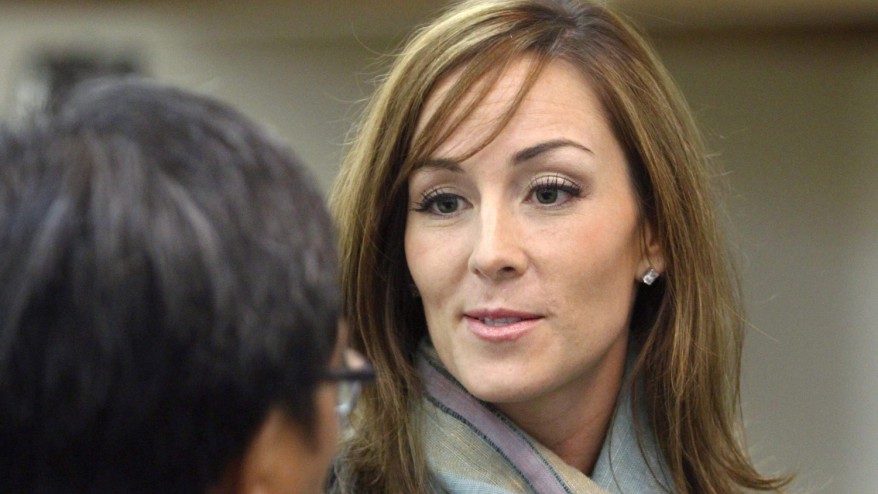Amanda Lindhout Preparing For The Trial Of Alleged Somali Kidnapper

Journalist and humanitarian Amanda Lindhout says she’s bracing herself for the psychological fallout from the trial of her alleged Somali captor, who was arrested in Ottawa earlier this year. In a personal essay published in Flare Magazine, Lindhout reveals that she’s scared by the prospect of Ali Omar Ader’s hostage-taking trial. She knew him as “Adam.”
“Knowing that the details of my captivity are likely to emerge in the headlines once more, I’ve had to start preparing to go through the experience,” she writes. “I’ve thought about it every day since Adam’s arrest.” Lindhout said Ader’s surprise arrest in June was a welcome development, “but it rattled something open inside of me, a part yet unhealed, still angry and confused.”
Now 34, Lindhout was kidnapped in August 2008 while working as a freelance journalist in Somalia. An Australian photographer, Nigel Brennan, their translator and driver were also abducted. She was beaten, tortured and sexually assaulted during 15 months of captivity — she detailed the experience in her bestselling memoir, A House in the Sky — before a ransom was paid for her release.
The RCMP launched a criminal investigation into the case that featured undercover operations, wiretaps and surveillance, much of it inside Somalia. In June, after years of police work, the RCMP announced that it had arrested one of the men allegedly involved in Lindhout’s kidnapping, a Somali citizen named Ali Omar Ader. The RCMP described Ader as “one of the main negotiators” for the Islamist group that seized Lindhout. Ader was apparently lured to Canada by undercover agents who convinced him that he had won a book deal to write about Somali history.
Ader, she Lindhout, was not one of the men who assaulted her in Somalia: “But he was a leader; he knew about what was happening and allowed it to continue.” Lindhout says those men continue to haunt her dreams. She suffers from post-traumatic stress disorder, the symptoms of which — flashbacks, nightmares, anxiety, nausea, hyper-vigilance — were made worse by news of the arrest.
The abuse she suffered in Somalia has affected other important aspects of her life, Lindhout reveals. “I’ve spent most of the past six years single. Relationships with men are still complicated, and scarily, most of the relationships I’ve been drawn into haven’t been healthy. It’s like some part of me has become familiar with mistreatment; it feels normal, somehow.” In 2011, Lindhout returned to Somalia one year after founding the Global Enrichment Foundation, a non-profit organisation aimed at improving education and leadership training in the war-torn African country.